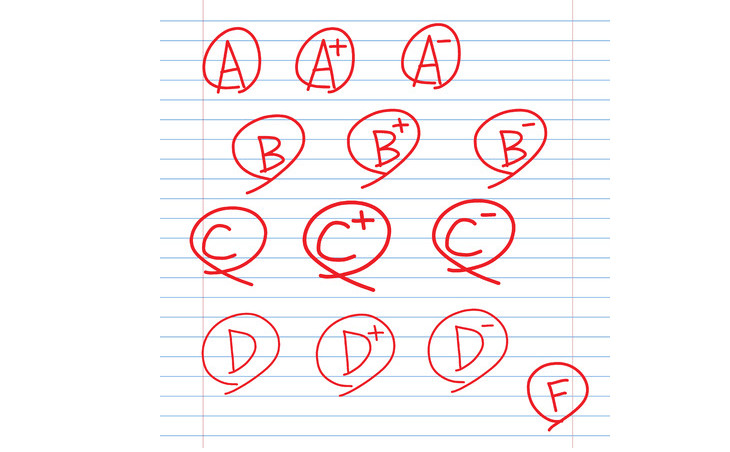Much has been said about the need to move away from the obsession on test and exams. This makes student life less stressful and learning more enjoyable.
Unfortunately, even with the changes taking place at the national level, with sweeping reforms on our assessment structure, the focus on academic excellence has been quite deeply ingrained into all aspects of our lives. Change is likely going to be easier said than done.
Obsession with marks and grades
Beyond the school environment, parents can also do their part to improve the experience of their children’s learning years. One area to pay attention to is our attitude towards this thing that has been synonymous with formal learning.
Marks.
It is not uncommon to chance upon images portraying student life or studying containing the numbers “10/10” on a piece of paper. Almost everything a student does in school will lead to a score assigned.

There is nothing wrong with using marks to gauge a child’s learning. However, over-emphasising and scrutinising the marks is akin to judging others based on one’s income. I’m sure everyone can agree that it is unhealthy if everything in life boils down to the dollars and cents. It doesn’t mean having less money makes one a lesser human.
While working adults earn money, students must work to ‘earn’ marks in school. The top scorers are the equivalent of the high earners in the working world. Money itself is not bad. It is just a tool.
Likewise, in our internet era, the number of ‘likes’ one gets or followers one has on a social media account is merely a numeric digit, but highly prized by many.
It will be quite strange that on one hand, we teach our children to gauge one’s worth beyond monetary values, beyond likes and followers, yet, obsessively use numbers in the form of marks to measure them and make comparisons when it comes to their studies.
Comparing numbers and the ill effects
Surely everyone would have heard of utterances like “You could have gotten 3 more marks if only you had written this in your answer!” or “Your test results have dropped by 13 marks!”
We need to realise that the downward change in the score does not automatically mean a regression in learning, nor does scoring more marks in a test guarantee content mastery. Scientifically, comparing marks is not even a fair test, (pun unintended) since the questions are different.
However, when the adults (parents, teachers or relatives) around a child constantly place emphasis on the marks they have scored or lost, the child will soon see this quantitative way as a gauge to his self-worth.
Just like how obsessing over how many ‘likes’ and followers one has on Instagram or how much one earns at work can lead to the eventual deterioration of one’s mental health and wellbeing, the same goes for the fixation over marks.
⇒ Related Read: How To Recognise And Manage Exam Stress In Children
If not marks, then what?
“But, if I do not look at marks to gauge my child’s learning, how do I know if they are learning?” you may then start to ask.
When a person is good-natured, this person will not need a large number of ‘friends’ or ‘followers’ on a social media account to validate his or her goodness. These people naturally possess the right attitude and outlook that will attract others to them.
Similarly, when a child has learned something well, the child will exude a natural air of confidence and even enthusiasm when asked to explain a question or problem. Likewise, this child will have no qualms declaring uncertainty over some concepts if he or she truly cannot grasp it.
Then conversations about studies no longer centre on how many marks the child has scored or lost. Instead, the child talks about what he or she understands and what is still confusing.

The child will also be keen to apply the learning to daily lives. Upon understanding the water cycle during Science class, for instance, a child may proceed to wonder why it hasn’t been raining for so long.
⇒ Related Read: Studying for PSLE Series: Science Exam
Or the child may (fall into the advertiser’s trap and) express shock at how cheap his desired smartphone model will cost after signing a 2-year contract with a telco (although it’s still not his own hard-earned money he will be incinerating) upon mastering the concepts of percentage in class.
On the other hand, while this may sound farfetched, how nice it would be if a child can confidently whine and complain to the parents about how much he or she hates fraction because it is so confusing, without worrying about being judged as lazy.
The child is actually giving the parents an opportunity to participate and help in his or her studies and sharing the trials and tribulations of the learning journey. This will certainly be so much better than retreating and evading the parent’s expected chastisement because of poor test scores.
The true distinction
In sum, marks are merely numeric scores that help to quantify a child’s work. Just like how a person’s capabilities cannot be narrowly defined by his income or the number of likes he receives on Instagram, a child must never be led to perceive his education is all about attaining higher grades and more marks.
This begins with the adults around the child. The true hallmark of meaningful education can only happen when marks and scores are disassociated with knowledge acquisition. This is when a real distinction in learning is scored.
By Tan Khee Shian.
Stay in touch! Subscribe to our Telegram here for all our latest updates.
Like what you see here? Get parenting tips and stories straight to your inbox! Join our mailing list here.


























































